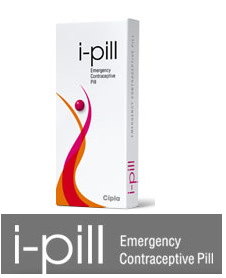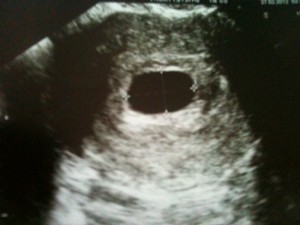Suffering from abnormal menstrual cycles lately? Check with your doctor to make sure you are not having Polycystic Ovarian Syndrome (POS). Believe it or not, 1 in 10 women suffer from this disorder.
What is Polycystic Ovarian Syndrome?
Page Contents
It is actually a hormonal disorder in women. It causes imbalance in hormones in women and leads to the formation of many follicles or cysts in their ovaries. About 20 to 35 % of women have polycystic ovaries.
Polycystic Ovarian Syndrome Causes
The causes behind this disorder are still unclear. However, research by doctors and health experts has pinpointed a number of factors that are counted as the reason behind the syndrome. These are:
Heredity
Patients with a blood relative suffering from the disease can also be a patient of this condition. The disorder may be genetically passed on from the parent to the offspring.
Excess Insulin
The production of more Insulin in the body can trigger this health condition. A balance in hormones results in a smooth menstrual cycle. Production of excess Insulin causes hormonal imbalance. This affects menstruation leading to the development of cysts.
Excess Androgen
The ovaries of persons affected with Polycystic Ovarian disorder produce excess androgen. Androgen is typically regarded as the male hormone. Higher androgen levels result in several complications in a woman’s body. This includes abnormalities in ovulation.
Polycystic Ovarian Syndrome symptoms
There are many symptoms of Polycystic Ovarian Syndrome. Generally, a person suffering from Polycystic Ovary disorder can suffer from any or all of these health problems:
- Acne
- Excessive growth of hair in face, chest, lower abdomen and fingers
- Oily skin
- Dandruff
- Pain in the pelvis region
- Depression or anxiety
- Sleep Apnea, breathing difficulties during sleep
- Irregular periods or no periods
- High bleeding or little bleeding during periods
- Abdominal irritation
The Polycystic Ovarian disease can also lead to other physical ailments. It can increase :
- High Blood Pressure
- High Blood Cholesterol Level
- Type II Diabetes
- Weight
Women having this health condition also have an increased chance of developing heart and liver problems. As the disease leads to ovarian problems, it can also cause infertility.
Polycystic Ovarian Syndrome Treatment
There is no specific treatment for Polycystic Ovary Syndrome. The disorder is usually cured by :
Lifestyle Modification
If you are suffering from this abnormality, it is best to turn to your doctor. Doctors and health experts often extend lifestyle modification suggestions and drugs to cure this syndrome. Women who have weight issues resulting from the disease are given exercise and diet tips. For patients of Polycystic Ovarian Syndrome diet involves healthy foods. These involve
- Green vegetables
- Fruits
- Lean meats
- Whole-grain foods
Foods that are processed or come with added sugars need to be limited and at best, avoided. Regular exercise, or at least a five-day workout regimen, can also be very beneficial. A good diet along with regular exercise can significantly lower body weight. Even a little loss of weight can bring menstrual cycle back to normal.
Medicines
Proper medication is highly needed to treat this health condition. The medicines normally used for treatment of Polycystic Ovarian Syndrome include
Creams – Creams are advised by doctors if the patient suffers from excess hair growth and acne.
Contraceptive Pills – Women who want to avoid pregnancy can use birth-control pills or similar drugs to cure hormonal abnormalities.

Picture : Contraceptive Pill
Source : 1.bp.blogspot
Diabetes drugs – The drug Metformin controls insulin function and androgen production. It is used to treat Polycystic Ovarian patients who have also developed Type II diabetes.
Infertility drugs – The infertility pills are generally not used because of their side-effects. However, women who suffer from this syndrome and want to get pregnant are usually prescribed any of these drugs:
- Clomifene
- Metformin
- Gonadotrophin
These drugs stimulate ovulation in Polycystic Ovarian patients. But they are also known to increase the risk of multiple births.
Vitro fertilization (IVF)
In this process, the egg cells of a woman are fertilised by the sperm cells of her husband or a donor outside the body. It is done artificially. The process is very costly. But it helps sufferers of this disorder to have normal births.
Surgery
Surgery is performed if fertility drugs do not work on the patient. The Laparascopic Ovarian Drilling (LOD) kills the androgen-producing tissues on the ovaries and makes it normal once again.
Natural remedies for Polycystic Ovarian Syndrome
Apart from medications, you can also try some home remedies to cure Polycystic Ovarian Syndrome. These include:
Diet
Choose a low-fat, low carbohydrate diet for faster recovery. Fresh fruits and vegetables are complex carbohydrates. They increase your blood sugar at a slow pace. But simple carbohydrates like sugar, candies and carbonated drinks can make it shoot up at a rapid rate.
Workouts
Regular exercise can keep your blood sugar level in control. It can lower your body weight and make your menstrual cycle normal.
Removal of hair
Herbal drugs and creams can naturally remove unwanted hair formed in the body. It is safer than normal pills that have side effects. You can even go for threading and waxing if you are too embarrassed with your hair.
Not smoking
Smoking brings on a lot of problems. It also cuts off much of the oxygen supply needed by your lungs. It is best to avoid smoking totally. If you cannot, cut it down to a minimum.
- Warm cure – If you are suffering from abdominal discomfort due to POS, you can try these.
- Fill your bathtub in warm water and lie in it.
- Press a hot water bag against your abdomen.
- Wear loose clothing.
Living with Polycystic Ovarian Syndrome can be difficult. However, there are ways to cure it. Even those who are lucky enough not to suffer from this condition can take good steps to avoid it. Healthy lifestyle, regular exercise, well-rounded diet and regular check-ups can help you prevent the disease as well as get cured from it.
References
http://www.womenshealth.gov/faq/polycystic-ovary-syndrome.cfm
http://www.babycenter.in/preconception/suspectingaproblem/pcos/
http://en.wikipedia.org/wiki/Polycystic_ovary_syndrome
http://www.squidoo.com/ayurvedicremedyPCOS
http://www.indiaparenting.com/womens-health/322_3743/what-is-pcos-polycystic-ovarian-syndrome.html


No Responses